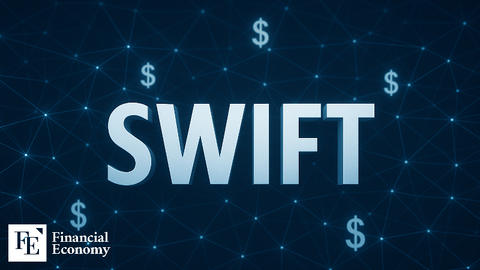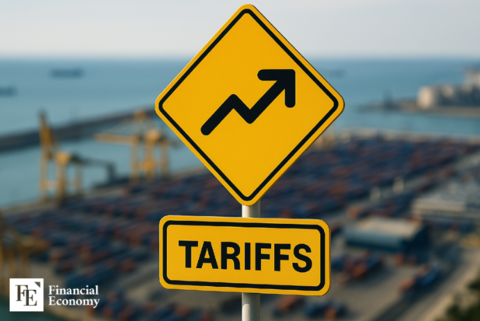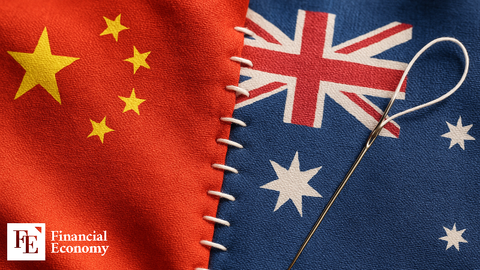Input
Changed
Trump administration’s new executive order imposes strict limits on high-risk biological research Scientists warn the policy could severely hinder innovation and international collaboration America’s future role in global scientific leadership in jeopardy
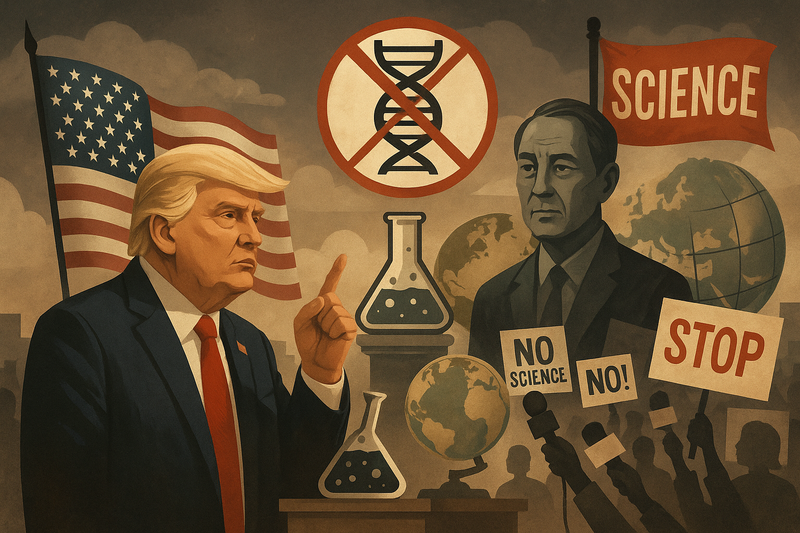
The Trump administration has introduced a sweeping new executive order designed to regulate high-risk biological research in the United States. Presented as a national security measure, the policy aims to prevent what it calls “catastrophic misuse” of scientific knowledge—particularly in the realm of biotechnology and pathogen research. While the White House insists this directive is necessary for the safety of the American people, scientists and academics see it differently. For many in the research world, the order represents a chilling move to control, limit, and politicize scientific exploration, with potentially dire consequences for innovation and global collaboration.
The order singles out one specific area: gain-of-function research. This refers to the study of how viruses and pathogens evolve, particularly when scientists deliberately enhance their properties in the lab to anticipate potential future mutations. Advocates argue such research is vital for vaccine development and pandemic preparedness. Critics, however—President Trump among them—claim it’s a dangerous game that could unleash uncontrollable biohazards.
In the text of the new directive, federal funding is officially barred from supporting any gain-of-function experiments in countries deemed security threats. That list includes adversarial states with opaque regulatory standards and limited transparency. The administration has emphasized that it views these labs as breeding grounds for risk, potentially vulnerable to errors, espionage, or even weaponization of pathogens.
Targeting Gain-of-Function Research in the Name of Security
For those following the evolution of U.S. science policy, the tone is unmistakably more severe than in previous administrations. The order further mandates a reevaluation of domestic biological research oversight. Agencies are instructed to overhaul how they approve and monitor projects, especially those involving novel or synthetic biology. Institutions receiving federal grants must implement stricter controls, vetting protocols, and regular audits.
To justify the measure, the administration has leaned heavily into pandemic-era narratives, reviving the claim that the COVID-19 pandemic was caused by a lab accident—an assertion that has long been debated and remains unresolved in the international scientific community. Regardless of the lack of consensus, the White House is treating the possibility as fact, positioning this executive order as a safeguard against history repeating itself.
However, to many researchers, this rationale is deeply flawed. Scientists point out that the most serious work on viruses and pandemics relies heavily on studying the very kinds of pathogens the order now seeks to limit. By restricting federal support and increasing bureaucratic hurdles, the administration risks stalling progress in areas that are essential for national and global health security.
The reaction within the academic sphere has been intense and largely negative. University biology departments, independent research institutions, and international science networks have all raised alarms. One leading concern is that the new rules could effectively isolate American science from the global research community. International collaboration, particularly in fields like virology, epidemiology, and genetic engineering, is essential for tracking emerging diseases and developing rapid-response tools.
Another concern is the chilling effect on scientific inquiry. While the administration presents its approach as merely a matter of accountability, many in the scientific community perceive it as an ideological move that will discourage young researchers from entering sensitive but vital fields. Graduate programs, already under strain from funding uncertainties, may become less attractive to students who worry that their work will be overly scrutinized, politically manipulated, or outright defunded.
Worse yet, the new policies could inadvertently drive research underground. Scientists who find it difficult to secure federal grants under the new framework may turn to private funders—some of whom may lack the same safety protocols or public transparency as government-backed programs. In trying to limit risk, critics argue, the administration could unintentionally create new dangers by forcing high-stakes science out of the regulated sphere.
Scientific Backlash and the Threat to Innovation
Notably, some voices from the tech sector have cheered the decision. Elon Musk, ever outspoken on topics ranging from AI to genetic modification, praised the executive order as a necessary clampdown on what he called “reckless biological adventurism.” His endorsement may reflect a broader trend among some entrepreneurs who are wary of unregulated research but skeptical of public institutions. Yet even this support has been met with eye-rolls from researchers, who see such endorsements as lacking a nuanced understanding of scientific rigor and safety protocols already in place.
This divergence in opinion between policymakers, business leaders, and scientists underscores a larger issue: the growing politicization of science in the United States. The Trump administration has repeatedly expressed distrust toward certain scientific institutions, viewing them as politicized or ideologically skewed. This has translated into efforts to tighten control not only over what gets funded but how it gets communicated to the public.
Researchers now face an uphill battle. In addition to navigating new compliance rules, they must also engage in public education and advocacy to defend the value of their work. Many worry that the average American—already fatigued from years of conflicting narratives about science, health, and public policy—may not understand how vital this research is to their everyday lives. From vaccines and treatments to food safety and bioterrorism defense, modern society depends on scientific progress in the very areas now under scrutiny.
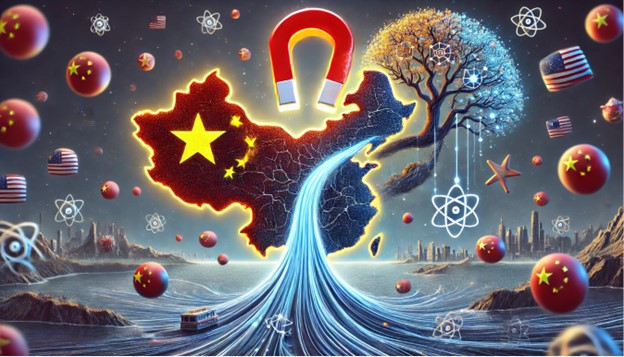
A Politicized Science Landscape and Global Consequences
Meanwhile, foreign governments are watching closely. If the United States withdraws from leadership in biological science, others will step in. Nations with robust research programs may seize the opportunity to attract top talent and assert dominance in the development of new biotechnologies. China, in particular, has heavily invested in synthetic biology and genomic research, and will likely continue to do so, with or without U.S. collaboration.
Ultimately, the Trump administration’s directive on biological research is a litmus test for how the country values science in the context of national security. Does protecting the nation mean pulling back from high-risk but high-reward research? Or does true security come from deepening our understanding and developing the tools to respond rapidly and effectively to threats?
The answer to that question may determine the trajectory of American science for years to come. What is clear is that the administration has chosen control and caution over openness and innovation. Whether that approach will protect the country or stifle it remains to be seen.
As debates continue in labs, universities, and legislative offices, the scientific community is preparing for a new era—one where the boundaries of inquiry may be defined not just by curiosity and discovery, but by politics and suspicion

